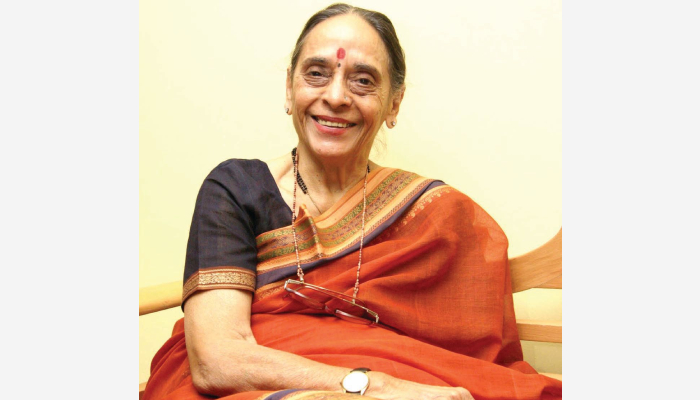
or

Justice Leila Seth was the first woman judge on the Delhi High Court and she became the first woman to become Chief Justice of a state High Court on 5th August 1991. Leila Seth was born in October 1930 in Lucknow and was the first woman to top the London Bar exam in 1958. She joined the bar in 1959. In the same year she also graduated as an IAS officer. Upon topping the Bar in England, Seth was referred to as “Mother-in-Law” by a London newspaper, which carried a photograph of a young and attractive Leila Seth with her infant son, born only a few months before the exams. At the same time, other newspapers expressed their grief about how out of 580 students who took the Bar Exam, a married woman topped it.
When in India, she was a junior to Ashoke Kumar Sen when she used to practice during his absence from the central cabinet of India. She handled a large number of Tax matters (Income Tax, Sales Tax, Excise and Customs), Civil, Company and Criminal cases as also Matrimonial suits and writ petitions. In 1978, she was appointed as the first woman judge on the Delhi High Court. In 1991, she was appointed the Chief Justice of Himachal Pradesh.
Justice Seth was also a part of various enquiry commissions, one of which was responsible for studying the effects of the television serial, Shaktiman (about a popular superhero) on children. Shaktiman was a popular TV series for children and it was the center of controversy because many children set themselves on fire or threw themselves off buildings hoping that Shaktiman would come and rescue them. Justice Seth was also part of an enquiry into the death of businessman Rajan Pillai, known as the “Biscuit Baron”, who was found dead in police custody. She was also part of the Law Commission of India till 2000, and was responsible for the amendments to the Hindu Succession Act which gave equal rights to daughters in joint family property.
Leila Seth’s autobiography was published by Penguin India in 2003. In On Balance, she talks about her early years of homelessness and struggle, her straying into law while in England with her husband Prem, and later practicing in Patna, Calcutta and Delhi; and her happy marriage of over fifty years, including the experience of bringing up three remarkable children: writer Vikram Seth, peace activist Shantum and film-maker Aradhana. Also dwelt upon are her views regarding corruption, discrimination and delay in the legal system; some judgments dealing with education and with inter-personal and constitutional law; and her experiences as a member of the 15th Law Commission. There are also delightful vignettes: Premo and her turning an old mansion into a splendid home in Patna, Vikram’s writing of the novel A Suitable Boy, Shantum’s ordination as a Buddhist teacher by Thich Nhat Hanh and Aradhana’s marriage to Peter, an Austrian diplomat, and work as a documentary film director and production designer on films like Earth and Water.
She was the Chair of the Commonwealth Human Rights Initiative (CHRI) for several years, and feels that social action litigation could be aimed at providing a decent standard of living for the poor and working people. She served on the Law Commission of India till 2000 and was responsible for the amendments to the Hindu Succession Act which gave equal rights to daughters in joint family property. In 2001, she was appointed Vice President of the World Commission on the Ethics of Scientific Knowledge and Technology (COMEST) set up by UNESCO and served for a number of years.
In 2010, she wrote We, The Children of India, which explains the words of the Indian preamble to younger readers. This was followed by Talking of Justice: People’s Rights in Modern India, in 2014, in which she discusses several critical issues she has dealt with in her expansive legal career.
She was also one of the three members of the 2012 committee (known as the Justice Verma Committee) which was constituted in the aftermath of the horrendous rape in Delhi of the young woman known as Nirbhaya.
The LW Bureau is a seasoned mix of legal correspondents, authors and analysts who bring together a very well researched set of articles for your mighty readership. These articles are not necessarily the views of the Bureau itself but prove to be thought provoking and lead to discussions amongst all of us. Have an interesting read through.

Lex Witness Bureau

Lex Witness Bureau

For over 10 years, since its inception in 2009 as a monthly, Lex Witness has become India’s most credible platform for the legal luminaries to opine, comment and share their views. more...
Connect Us:


The Grand Masters - A Corporate Counsel Legal Best Practices Summit Series
www.grandmasters.in | 8 Years & Counting
The Real Estate & Construction Legal Summit
www.rcls.in | 8 Years & Counting
The Information Technology Legal Summit
www.itlegalsummit.com | 8 Years & Counting
The Banking & Finance Legal Summit
www.bfls.in | 8 Years & Counting
The Media, Advertising and Entertainment Legal Summit
www.maels.in | 8 Years & Counting
The Pharma Legal & Compliance Summit
www.plcs.co.in | 8 Years & Counting
We at Lex Witness strategically assist firms in reaching out to the relevant audience sets through various knowledge sharing initiatives. Here are some more info decks for you to know us better.
Copyright © 2020 Lex Witness - India's 1st Magazine on Legal & Corporate Affairs Rights of Admission Reserved